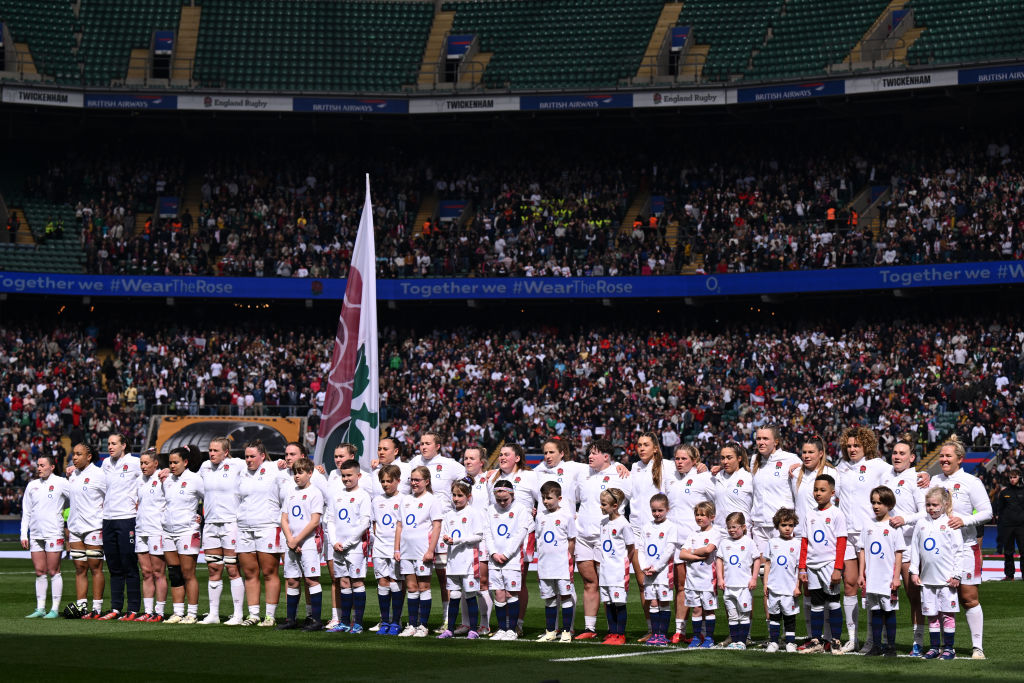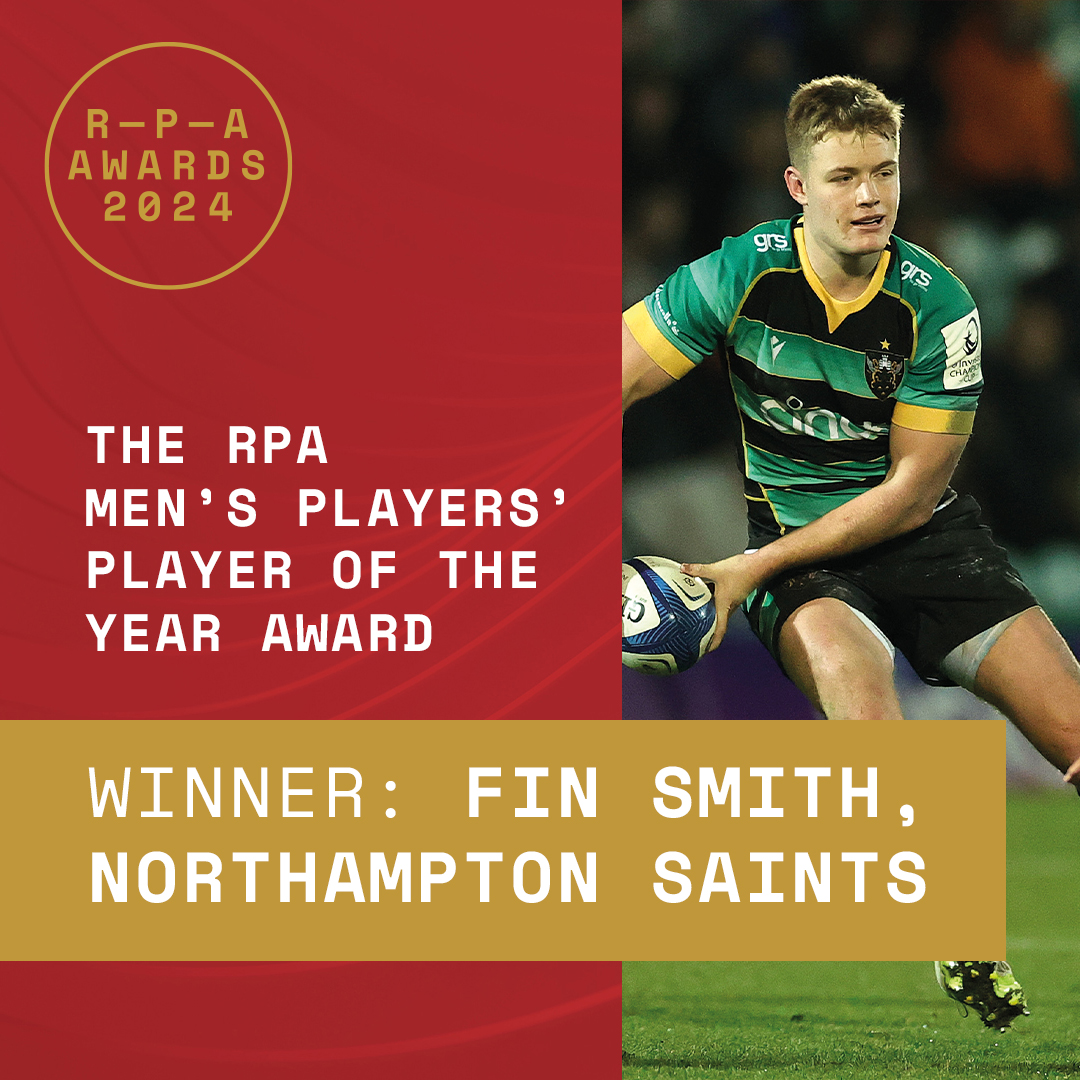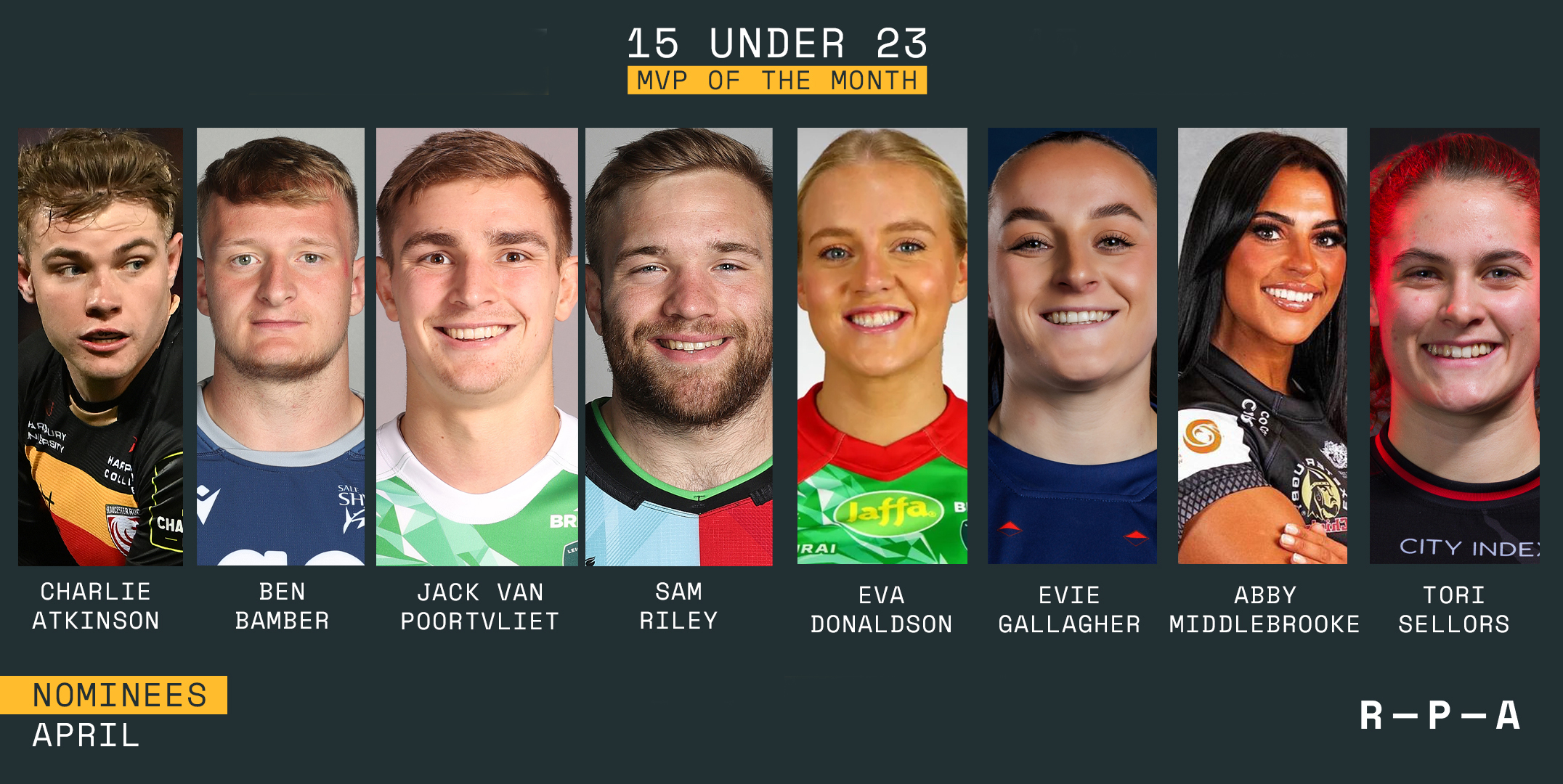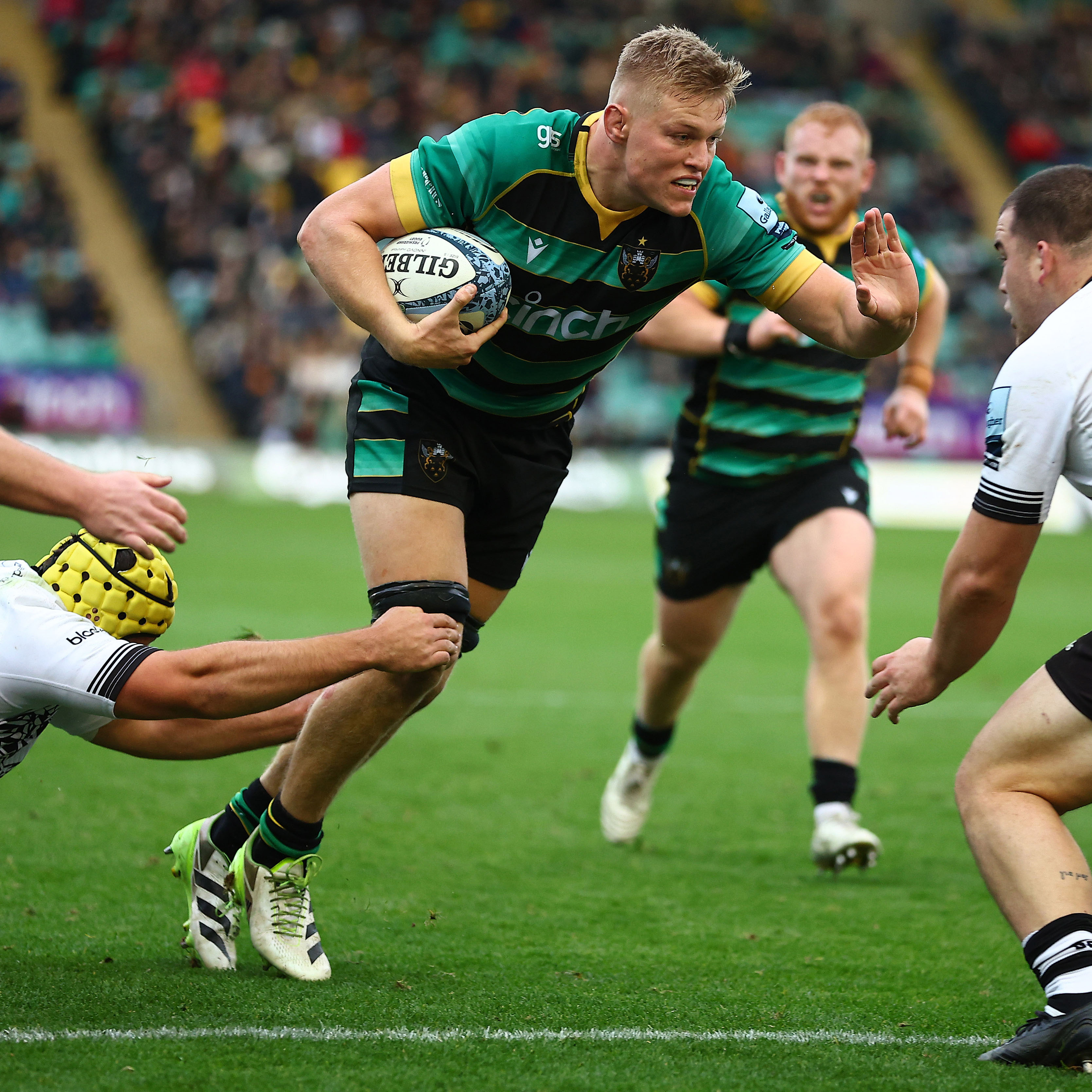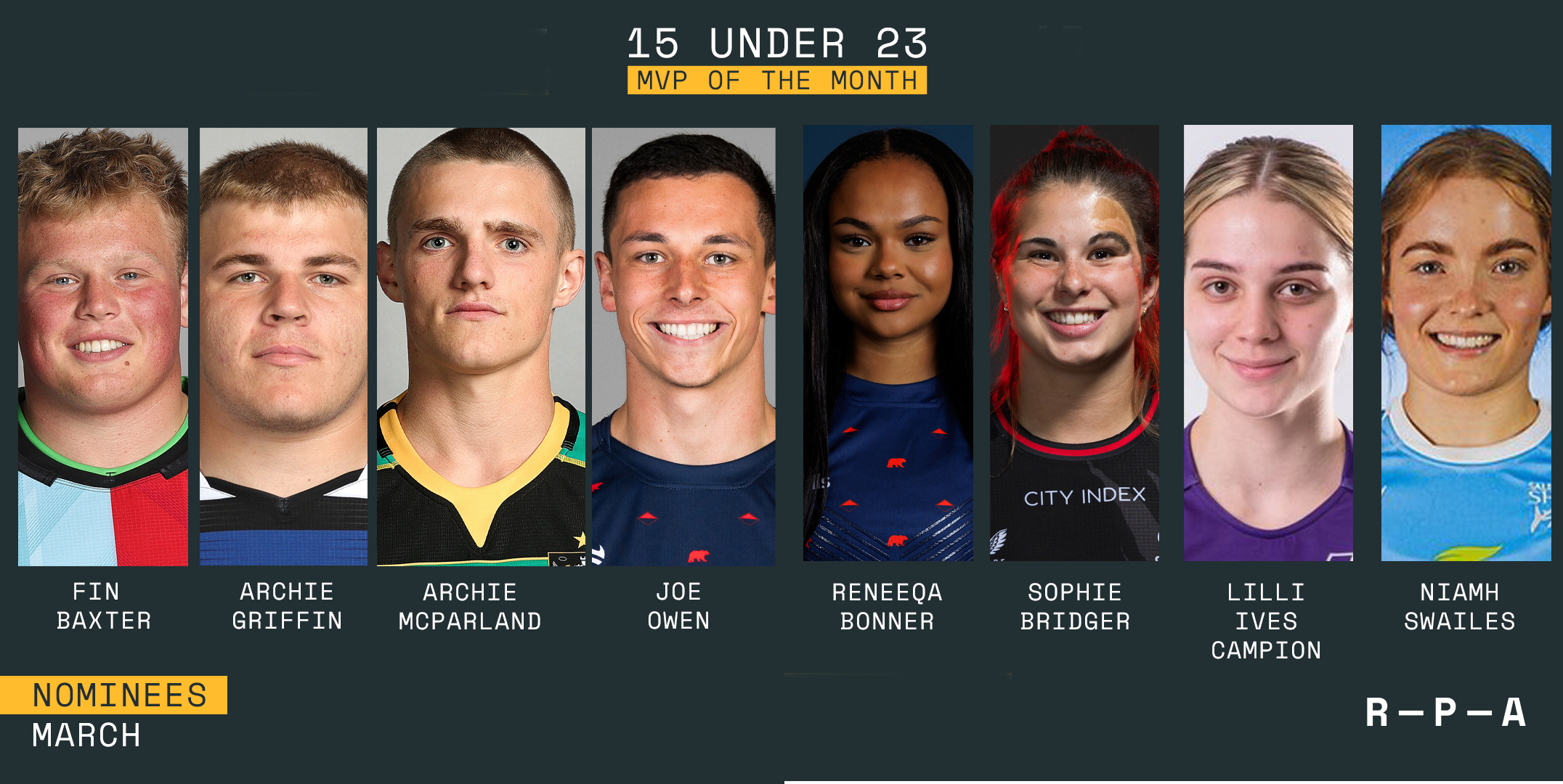Maggie Alphonsi: Black History Month
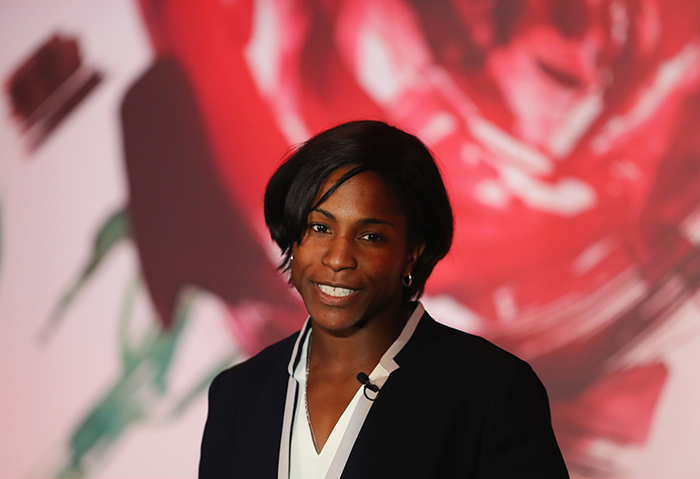
We were joined by former Women's Rugby Union star Maggie Alphonsi to discuss the importance of Black History Month, and what she's up to now
How important are events like Black History Month to you and have you seen a change in how people engage with them?
First of all, it is important. What I find really significant about the Black History Month is the fact that you get to celebrate stories from people that have done amazing things, some great stories, but also people who are living normal lives, I think that’s really powerful to hear their stories and voices. I think Black History Month, what’s good about it is that we also get to reflect and review on where we are right now as in terms of Diversity and Inclusion and almost being quite honest and transparent in what things need to be improved on and where we’ve come from and where we are going, that’s quite a significant thing about the month as well.
I think another thing I find quite powerful in Black History Month is celebrating role models. I think that’s huge, and also trying to inspire those who are coming through who are hoping to forge their own pathways and look for role models or people’s stories on those who have been successful, almost giving belief and motivation and drive to want to excel and be successful, and I think that’s very powerful. I hear lots of people’s stories and it blows me away, it motivates me, and to be able to have a month where we get to do that is really significant.
I’ve definitely seen a change in how people engage with it. I think especially over the last year, with all the recent movements that we’ve had, I think that’s definitely increased things, and that’s more of an interest with regards to diversity and inclusion – I’ve seen that across corporate businesses, and society. There is a real need and want to make sure that we are diverse, and we represent our population. We’re hearing different people’s voices, experiences, and backgrounds. So, when I now work with different businesses, I’m seeing that there’s a real “can we get speakers in, can we do more to ensure that we are hearing all the voices within our company”. Also, the month is becoming more visible. I guess previously, Black History Month and for example International Women’s Day, they were talked about but really not visible. But now, I think everyone knows when International Women’s Day is happening and same with Black History Month. There’s so much activity and activation happening around the month within different organisations and businesses across the medium, that is significant. There’s probably been an acceleration of change over the last year with regards to the various movements that have been happening, and things that have happened, that has instigated the need and want to make sure we do more to Diversity and Inclusion.
In the last year, how have you found rugby has handled the movements that have gone on?
It’s been interesting. The first movement we can talk about, is that a lot of athletes have been kneeling. That has been interesting to see how that has been executed across different teams, men’s rugby, women’s rugby, and although we didn’t have crowds initially, how it’s been received. I think what’s been interesting is seeing how different teams have approached that, not necessarily everyone has supported it. But I think at the same time, what was permitted, was to allow athletes to voice their feelings and supporting the cause as well, and every individual is entitled to choose how they want to respect that. That was really positive to see that across rugby. Rugby was choosing to support or express their own views about the campaigns that we had.
I think also what I feel with rugby is that it’s been great to see more rugby players speak out, and I don’t necessarily mean speak out against stuff, but just be open and calling out stuff but also being open about what their experiences are, and things which need to be improved. We’ve heard from Maro Itoje, he’s been very open about stuff, and Shaunagh Brown and Deborah Fleming from the women’s game. There’s been various players and coaches who have spoken about Diversity and Inclusion. That has been significant, hearing athletes and coaches, talk about where we are currently at, what needs to be improved and how we’re going to get there.
I think one of the things that I’ve also seen over this last time, is as a sport, recognising where we need to make improvements, and also be honest and say “where are we lacking in terms of diversity, especially when we’re talking about black and ethnic minorities, where can we improve that” so we’ve obviously highlighted the fact that the men’s England team has a lot of diversity there, 35% they say, but in the women’s game, where can we improve that, not only just in the sport itself in terms of players, but how do we improve that with regards to the leadership pathway, so at the community game, where are we trying to improve our diversity be it in terms of committees, volunteers, how are we trying to improve that, what can we be doing to improve the talent pathway of people who want to get into leadership board. I for one am on the RFU Council, and Tom Ilube is another person of colour who’s come on board as chair. I guess it’s recognising, not necessarily what the barriers but what are the things that are stopping or maybe not being of interest to some individuals to want to try a career up the pathway, so I think that’s what I’ve seen over our sport and the progressions that are happening.
I’m on the Diversity and Inclusion Working Implementation Group and that’s been quite powerful to recognise the recommendations and the things we need to improve within the leadership of the RFU. They are starting now to be actioned and there’s been other Diversity and Inclusion advisory groups running, and I think that’s trying to hear more voices from within the game, so I think there’s a lot that’s happening, especially when I’m thinking about Jeff Blackett, the RFU President. He’s been very open about wanting to make sure his term is all about trying to improve Diversity and Inclusion and we’re definitely starting to see that, and I guess the period has allowed us to be open and honest about where we’re falling short and how we can improve on that.
How significant is it that the RFU Council are looking to bring in four new members from diverse backgrounds, and what message do you think that sends?
It sends a powerful message to emphasise the fact that they do want to create diversity, we do want to be a better representation of the clubs and the members that we serve. I think the idea of co-opting is significant, it’s another way of creating change. We saw it with the World Rugby Council and they ended up increasing their membership and bringing in a significant number of women to the board and that was really important, because again, if half of your population that play the sport are women, at some point you need to make sure you’ve got some of those individuals on the Council. I think that’s the same with our Council. If we’re trying to represent the members, we need to make sure that we’ve got that diversity of thought, and diversity of backgrounds and perspectives so it sends a big significant message out to the game that we want to be your voice.
You still sit on the RFU Council, how do you feel this is helping in progression of the game?
Me being on the council, I very much appreciate it, but I’m one person, a former rugby player. Thankfully, I have got good experience within the game, not just as a player but I’ve been a volunteer, I’ve also worked for the RFU, I’ve got the various different hats and roles that I’ve covered throughout my entire rugby career that puts me in a good position on the council. I think as a collective and a group, it’s really been quite good to see a real bit of change, and by that I mean, like I mentioned, prior to this year, we set up the Diversity and Inclusion Working Group, and initially that was a three year term, just to identify what the recommendations should be that the RFU should be changing with regards to the leadership. That working group has now turned in the Implementation Group, so that there’s now a real focus on what needs to be done, and that’s now been put into plan. So that’s one thing I’ve seen within the council. Like I mentioned previously, our President Jeff Blackett has made sure that’s the big focus of his term, to try and make sure Diversity and Inclusion is being improved, and we can see that with co-opting.
Whilst I’ve been on the council (I’ve been on it since 2016), I guess I’d be open and honest and say the change has been quite slow. I was the only person of colour for a long period of time. In terms of women, that has slowly started to increase, we’re starting to see more women on the board, and now Tom Ilube has come on as Chair, which is fantastic, and now we’re starting to co-opt people from diverse backgrounds. So for me, the change has been slow, but what I’m pleased now is seeing an acceleration in the change, and things are now starting to move. The big reason behind that is because society is changing, and as a sport we want to lead the way, not follow, so it’s good to see rugby taking those steps forward.
How crucial is it that organisations like the RFU and World Rugby call for equality in sport?
It’s really important. Obviously the RFU is England, they are leading the way in what we’re doing in England, with the hope that other unions follow suit. Again, I can’t speak for other unions, but I know in World Rugby, Diversity and Inclusion has always played a big part of their focus. I guess I can’t talk on behalf of World Rugby with regards to ethnicity. What I’ve seen quite a lot with World Rugby is definitely all-around women and girls, and I think what’s been the big focus for World Rugby is definitely trying to bring round the discussion to Diversity and Inclusion and ensuring that’s central across different unions. We all fully understand the world is a big beast, so when you’re talking about different unions, they all have different ways of working. I think the key thing is what we touched on before in England, the RFU try and lead the way so others will want to follow and follow similar structures, and I think when World Rugby made the change with getting more women on the council, that is definitely pushed other unions to do the same, so it’s really important that the likes of World Rugby and the RFU from my perspective taking the stance and say we need to have greater diversity, be it women or people from different backgrounds and ethnicities.
How valuable is the player voice in these matters?
It’s hugely important. I think if I’m honest, people listen more to the players, than they would do listening to a person in a leadership role or another position in administration. People are more likely to listen to the likes of Maro Itoje, or Shaunagh Brown because they are the players that are the role models. They have great platforms; really good profiles and they lead by example. It’s really important that those individuals do speak out but are also highlighting the areas we need to improve on, but also the areas we do really well. I think we’ve got very good role models within rugby union, that do present that. Again, our role models are quite varied, people who are playing, who have retired, people who work in broadcast etc. so it’s very important they use their platform, you don’t need to tell the twice, they’ll do it. They are very good ambassadors for our game.
You’ve recently been appointed on the board of Saracens; do you see this position as a chance to improve the Diversity & Inclusion within the Premiership club?
In any board, it’s about reviewing your contribution to the board, and what are you going to add to the board that makes it significant. So, my role specifically is very much around Diversity and Inclusion, so especially when you think about women and girls, that’s significant. The good thing around the club, and I’m talking about men’s and women’s, there is a good level of diversity that’s coming through especially when you think about it’s a North London club, the surroundings and community, the Saracens School as well. There is diversity in the community. When I think about my role and where I want to impact the club, is I want to keep improving that, I want those who live in the community of Barnet, to go “I’d love to play rugby” especially girls and women as well, so that’s something I’m looking at bringing to the party.
But my role is more than that, it’s about the club. It’s a really good club, it shaped my life, it saved my life, and I’m very much in ownership to it and want to give back, and there’s a really good group of people on the board. The club has done so much, not just for the men, but for the women, and to be part of the board is something I feel very privileged about and I want to make sure I do want I can for the club and grow it and guide it in its’ future direction.
How important is it to educate everyone about inclusivity and racism, about what is right or wrong?
It’s really important, but it’s difficult, isn’t it? Because I’m a person of a black and brown face, it’s sort of like I don’t want to put the weight on mine or many other black and brown faces to say ‘your job is to go and educate everyone’ because realistically, I think we all have the role and responsibility to educate ourselves. Even me, as a person of diversity, I still have to educate myself on, just like everyone else, what is the appropriate language, understanding other people’s backgrounds, but we all must be responsible to try and do that, that’s very important.
But at the same time, we don’t want to create that cancel culture, if someone makes a genuine mistake, you don’t want to council them out from society, you want to support them and educate them in a different way. If someone makes a mistake in terms of language, I’m very open to correct and explain to them why we don’t use it, I think you’ve got to be careful in how you manage it and bring people along with you rather than trying to isolate them and put them off. The only way we can overcome racism, which unfortunately I don’t think will ever happen, is about making sure we bring people along with us and support their learning and understanding and listen to the debate and discussions and making sure we are all open and transparent about what we hear but also how we act as well. Another big part is to call it out when we see it, but we all take accountability of education ourselves.


